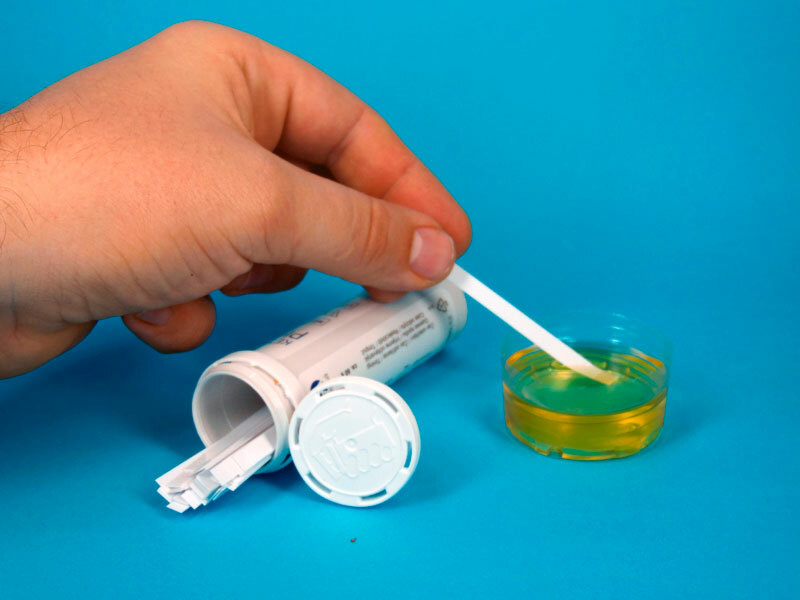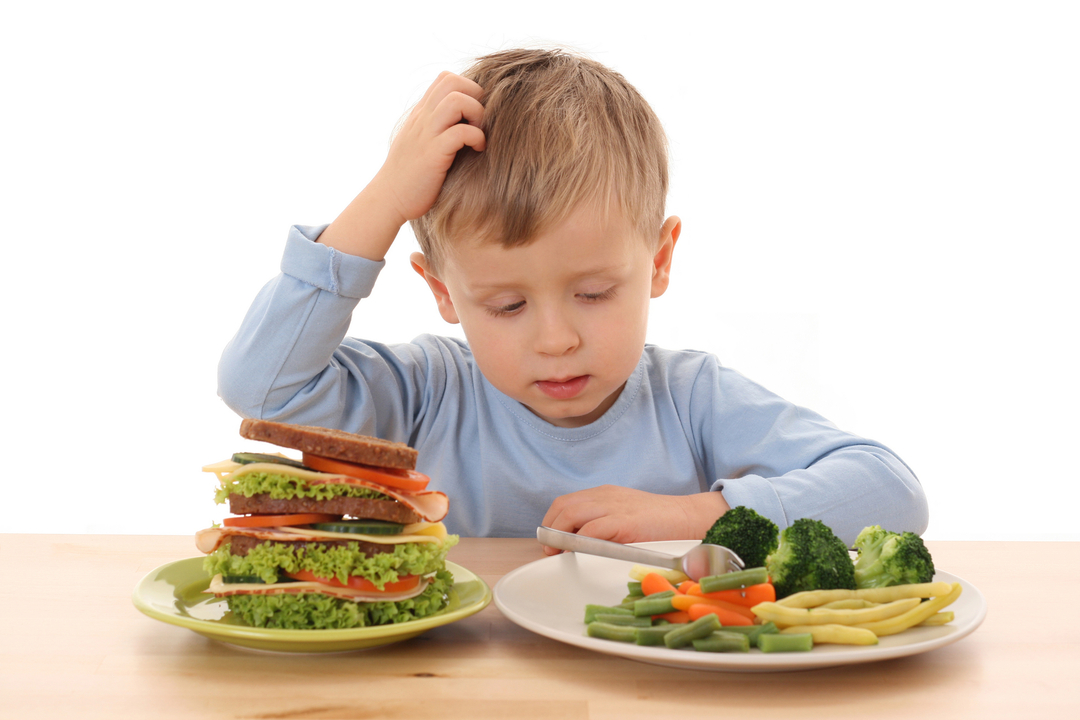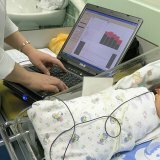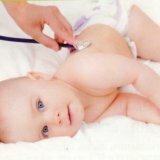Acetone in a child: causes, symptoms, treatment and diet

Acetone in the urine of a child or acetonuria is a condition that occurs due to metabolic disorders or chronic body diseases.Whatever the reason for the appearance of acetone in the urine, pathology is always a danger to health and requires competent medical care.
Table of contents: Acetone in the urine of a child: causes Acetone in the urine of a child: symptoms and signs How is the acetone crisis diagnosed Treatment in the presence of acetone in the urine of a child Recommended diet in the presence of acetone in the blood of a childAcetone in the urine of a child: Causes
The main reason for acetoneuria in childhood is the excess level of ketones in the blood.In clinical practice, this condition is called acetonemia.Normally, ketone bodies are not found in the blood, as they are only intermediate links in the synthesis of glucose, the main energy source for the body of every human being.However, sometimes their splitting does not occur.Ketones exert a destructive effect on all cells of the body, irritate the mucous membranes of the gastrointestinal tract, promote the progression of metabolic disorders, the development of metabolic acidosis, the most dangerous consequence of which can become a coma.
 A similar condition occurs even in absolutely healthy children with a violation of fat metabolism and the process of assimilation of carbohydrates.The development of acetonemia is caused by an increased sensitivity of the organism to fluctuations in the level of glucose in the blood.
A similar condition occurs even in absolutely healthy children with a violation of fat metabolism and the process of assimilation of carbohydrates.The development of acetonemia is caused by an increased sensitivity of the organism to fluctuations in the level of glucose in the blood.
Ketones, getting into the bloodstream, begin to negatively affect the central nervous system of the child.Since the kidneys immediately remove them from the body, acetone is easy to detect in laboratory urine testing.
The main factors leading to acetonemia in children:
- Low blood glucose concentration due to unbalanced nutrition with low carbohydrate content, stress, physical and mental stress;
- excess amount of fats and proteins in the diet;
- diabetes mellitus, serious immune disorders, liver pathology.
Separately, we should consider diabetes mellitus.With this chronic illness, the glucose level can be within normal limits, but this substance is not consumed effectively due to a lack of insulin.
Acetone in the urine of the child: symptoms and signs
The presence of acetone in the urine can be suspected by the clinical manifestations of the acetone crisis in children. Typical signs of this condition are as follows:
-
 nausea and profuse vomiting leading to dehydration.Multiple vomiting can occur every time after eating or drinking;
nausea and profuse vomiting leading to dehydration.Multiple vomiting can occur every time after eating or drinking; - decreased appetite;
- pain and cramping in the abdomen;
- general weakness;
- dry skin;
- characteristic plaque on the tongue;
- increased body temperature;
- urinary excretion in small volumes;
- specific odor of acetone from the oral cavity;
- confusion, excitability or lethargy, fainting and other signs of central nervous system damage.Children often have severe drowsiness, which in severe cases can lead to coma.
The diagnosis of "acetonemic syndrome" is made if several such crises were observed in the child during the year.Acetonemic syndrome can be primary, diagnosed mainly in children with neuro-arthritic diathesis, as well as secondary, arising on the background of other pathological conditions: infectious processes, traumatic injuries, somatic diseases, for example, diabetes mellitus or anemia.In this case, the symptoms of acetonemia occur in conjunction with the clinical signs of the underlying disease.
How the acetone crisis is diagnosed
 When the condition in question is concerned, the size of the liver increases in size, as determined by ultrasound and palpation.There are characteristic changes in laboratory tests of blood and urine: in a biochemical study in blood glucose concentration is lowered, a general analysis reveals an increase in leukocytes and ESR, in the analysis of urine acetone is detected.
When the condition in question is concerned, the size of the liver increases in size, as determined by ultrasound and palpation.There are characteristic changes in laboratory tests of blood and urine: in a biochemical study in blood glucose concentration is lowered, a general analysis reveals an increase in leukocytes and ESR, in the analysis of urine acetone is detected.
It is faster and easier to diagnose acetonuria with test strips that are suitable for home use.Such rapid diagnosis should be performed as soon as possible after the child has the first symptoms of the pathological condition to determine the concentration of ketones in urine .
The test results are interpreted as follows:
- +( 0.5-1.5 mmol / l) - mild degree of acetonemia;
- ++( 4-10 mmol / l) - medium degree of acetonemia, requiring complex therapy;
- +++ - the result above 10 mmol / l indicates a serious condition of the child and the need for his prompt hospitalization.
If an express test shows the presence of acetone in your baby's urine, you need to take steps to reduce it.To evaluate the effectiveness of ongoing activities, it is recommended to repeat the diagnosis every three hours.
Treatment in the presence of acetone in the urine of a child
If acetone is found in the urine of a child, a doctor should prescribe the treatment.Show the baby specialist is necessary at the first signs of pathology, since the reaction of his body can be unpredictable.If the diagnosis of "acetone -mic syndrome" is already set, parents usually know what help to give the child at home in the acetone crisis.
If the acetone crisis has appeared for the first time, it is necessary to visit a doctor who can determine the exact causes of the pathological condition and make a competent treatment regimen.In most cases, hospitalization is not required except for a severe course of the disease, accompanied by convulsions, indomitable vomiting, loss of consciousness.
The main therapeutic measures for this condition should aim to accelerate ketone removal and normalize glucose levels.The cleansing enema will help to eliminate the symptoms of an organism intoxication.Also, the child should be given a medicine from the group of enterosorbents( Polysorb, Smecta, etc.), to provide copious drinking.Liquid is given in small portions, to eliminate the lack of glucose, it is recommended to alternate the usual pure or mineral alkaline water with sweet drink( tea with honey, compote, glucose solution 5%), with diarrhea it is permissible to give rice decoction.
Important ! In the , the period of treatment can be reduced appetite, so you can not force the child to eat food violently, but, nevertheless, one should not allow fasting.In this state, it is best to give the baby light food with a high carbohydrate content, for example, porridge on the water.
When the manifestations of the acetone crisis are eliminated, the parent's task will be to prevent it from reoccurring.Even after a single increase in acetone in urine, it is necessary to consult a specialist and undergo a comprehensive examination.In the acetone syndrome, it is necessary to adjust the diet and lifestyle in such a way as to minimize the triggers of crises.
Children should observe the correct mode of sleep and rest, more often be in the fresh air.In the presence of neuro-arthritic diathesis, experts recommend limiting computer games and TV.It is also necessary to monitor the physical activity of the child, avoiding overstrain.The same applies to mental loads.
Recommended diet in the presence of acetone in the blood in a child
The correct diet will avoid increasing the concentration of acetone in the urine.The diet should be formulated in such a way as to exclude ketogenic products.
These include, in the first place:
-
 fatty meat and fish;
fatty meat and fish; - smoked products;
- fatty rich broths;
- marinated products;
- cream and sour cream;
- by-products;
- coffee, cocoa, as well as products with its content;
- fungi;
- Citrus Fruit;
- tomatoes;
- sorrel.
Completely exclude from the diet any soda, fast food, chips and other foods with a high content of preservatives.But the number of foods that should be included in the daily diet include fruits, honey, biscuits and other foods rich in light carbohydrates.Of course, giving her a child is necessary within reasonable limits.
In case of acetone crisis, children are given a fractional diet, from which fresh fruits, any sharp and fatty foods, smoked products, dairy products are excluded.
So, acetone in the urine of a child can become a dangerous condition in the absence of timely help.Children prone to this pathological condition need constant monitoring of blood glucose levels, strict observance of the correct regime of the day and nutrition.Parents are advised to always store test strips at home, so that in case of symptoms of an acetone crisis, the level of acetone in the urine is quickly determined.
For more information on how to treat acetone in a child, you will receive a video review of Dr. Komarovsky:
Chumachenko Olga, pediatrician



